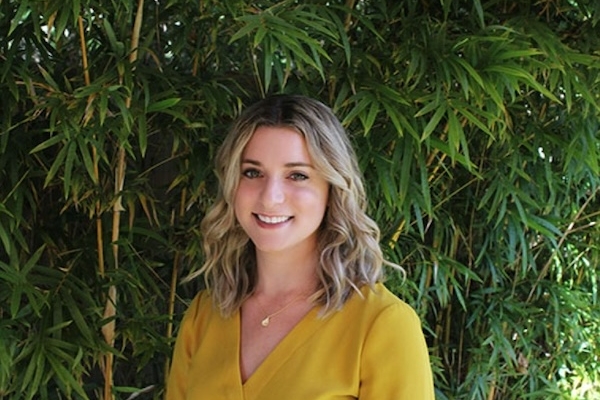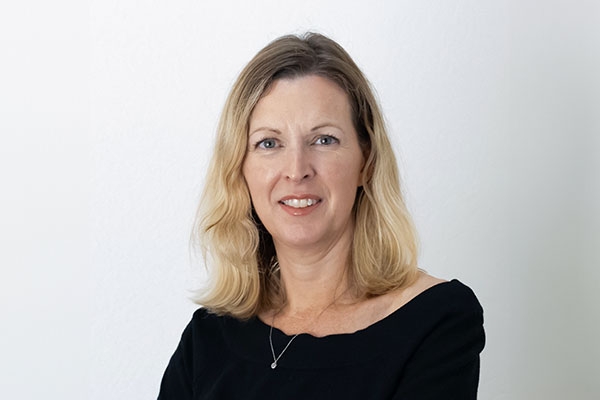The way Ameer Acharya explains it, accounting and finance are perfect complements to each other when analyzing business growth and expenditures. If you think of them as working outward from the center of a concentric circle, they are adjacent areas of work.
“Learning more about one of the two never subtracts from your core knowledge, but often provides more insights,” Ameer describes. “Accounting provides a good bottoms-up view of the business—from the transaction level to the consolidated financial statements. I see finance as more top-down, generally speaking. But understanding financial markets is very useful and important because that environment explains some of the movements in financial positions.”
And Ameer is no stranger to both worlds, having 15-plus years in industry. He originally started as a project manager at ANZ Bank in his native Australia. Nearly three years later, he traveled to Japan to work as a project analyst at Barclays Capital and then as project manager at Nikko Citigroup, both focused on the finance side of the business. He made an internal transfer with Deutsche Bank from Japan to Singapore to take on a regional management reporting role, and subsequently project managed the regional implementation of IFRS 9.
Then, in 2019, he transferred to Deutsche Bank head office in Germany, where financial accounting knowledge became core to the role.
“I had only done a couple of units of accounting at Monash University and I was working on a transfer pricing project where accounting knowledge was very relevant,” Ameer relays. “Also, the 'run the bank' staff were often too busy to dedicate much time to drafting requirements and testing. So I decided I would need additional accounting knowledge to help me write the business requirements and journal entries, and also the test scripts.”
Ameer started his search for accounting courses that would give him practical knowledge that he could immediately apply to his work at Deutsche Bank. Our accounting certificate—which can be taken fully online—fit the bill.
“With the certificate, I knew that I could apply the knowledge immediately and be a more independent and helpful colleague,” Ameer recalls. And so he began his educational journey with us.
Why did you choose our Accounting certificate?
Simply to brush up on knowledge that I had forgotten. Also, I had just completed the Chartered Financial Analyst® course from the CFA Institute, so I thought accounting was a good complement. Also, I was looking to build a good foundation in accounting, and perhaps do the U.S. CPA licensing—which I am now one exam away from hopefully completing!
With the certificate, I knew that I could apply the knowledge immediately and be a more independent and helpful colleague.
What was your experience taking all of the classes online—and from a different time zone!
Interaction with my fellow students was often through the written postings we shared for the class projects. It was interesting to read answers from other students and gain their perspective. I hope I could add to their perspective, too.
I recall there was a student in my class who worked at Microsoft and wrote some very good answers that helped me think a bit better on some topics.
How were you applying coursework to your role at Deutsche Bank?
I lead a small team that covers group regulatory reporting in Frankfurt—mainly SEC Form 20-F annual reporting, Financial Reporting (FINREP; based on the International Financial Reporting Standards), Common Reporting Framework (COREP), Pillar 3, Global Systemically Important Banks (G-SIB) and credit risk reporting—that's an alphabet soup. Most of this would not be familiar to many Americans because it covers the regulatory reporting landscape in Europe.
Much of our team is based in India. Apart from the regulatory report submissions, we do a lot of ad-hoc reporting, which has intensified due to the COVID-19 pandemic. We also act as internal advisers to the rest of the group as to what data is available, what needs to be disclosed, correct account codes for new transactions, system design changes, control remediation steps and increasingly automated reporting solutions. Although our accounting is IFRS based, there are many similar principles to U.S. GAAP.
I applied accounting knowledge when writing business requirements for fixed-asset accounting and test scripts for UAT. The financial accounting course was helpful in this regard.
How did you apply U.S. accounting information with European regulations?
The accounting rules are quite similar; I just had to learn both standards, but the U.S. GAAP foundations were sufficient for my purposes.
Our organization is complex, with many accounting standards for different countries—German GAAP, Japan GAAP, et cetera—but group reporting is IFRS-based. The main GAAP postings are a delta entry from IFRS. New accounting standards are communicated by the relevant policy teams. A multiple accounting standard environment, while complex, gives rise to opportunity.
As an aside, I don't think there will ever be full convergence of accounting rules. Countries have different cultures (some vastly so), and it manifests itself in the regulatory standards adopted, including accounting standards.
Earning the certificate is a step in a long journey of learning, but an important one because it gave me more confidence in the area.
You received the certificate in 2019—congratulations! What does this mean for you personally and professionally?
Not many people would describe me as an accountant. But in business, accounting controls incentives because it's a measure of business performance. Having knowledge of a measurement discipline is important. Also, new accounting rules may help solve big problems we are dealing with today, like climate change.
Earning the certificate is a step in a long journey of learning, but an important one because it gave me more confidence in the area. It's been a prerequisite for my U.S. CPA undertaking, too.
In any profession, it's important to speak the language. Professionals who recognize the same language can find it easier to solve problems. Accounting can be an international passport, too, as it happened maybe fortuitously for me. Delivering well on your current job is the best chance of someone recognizing you and allowing you to make significant moves.
But now I also need to learn German—see, another language!
What advice would you give to a student who is starting the certificate?
Do something because you are genuinely curious about it. In my experience, curiosity is the most important factor in doing well because it will drive you to keep finding things out.



